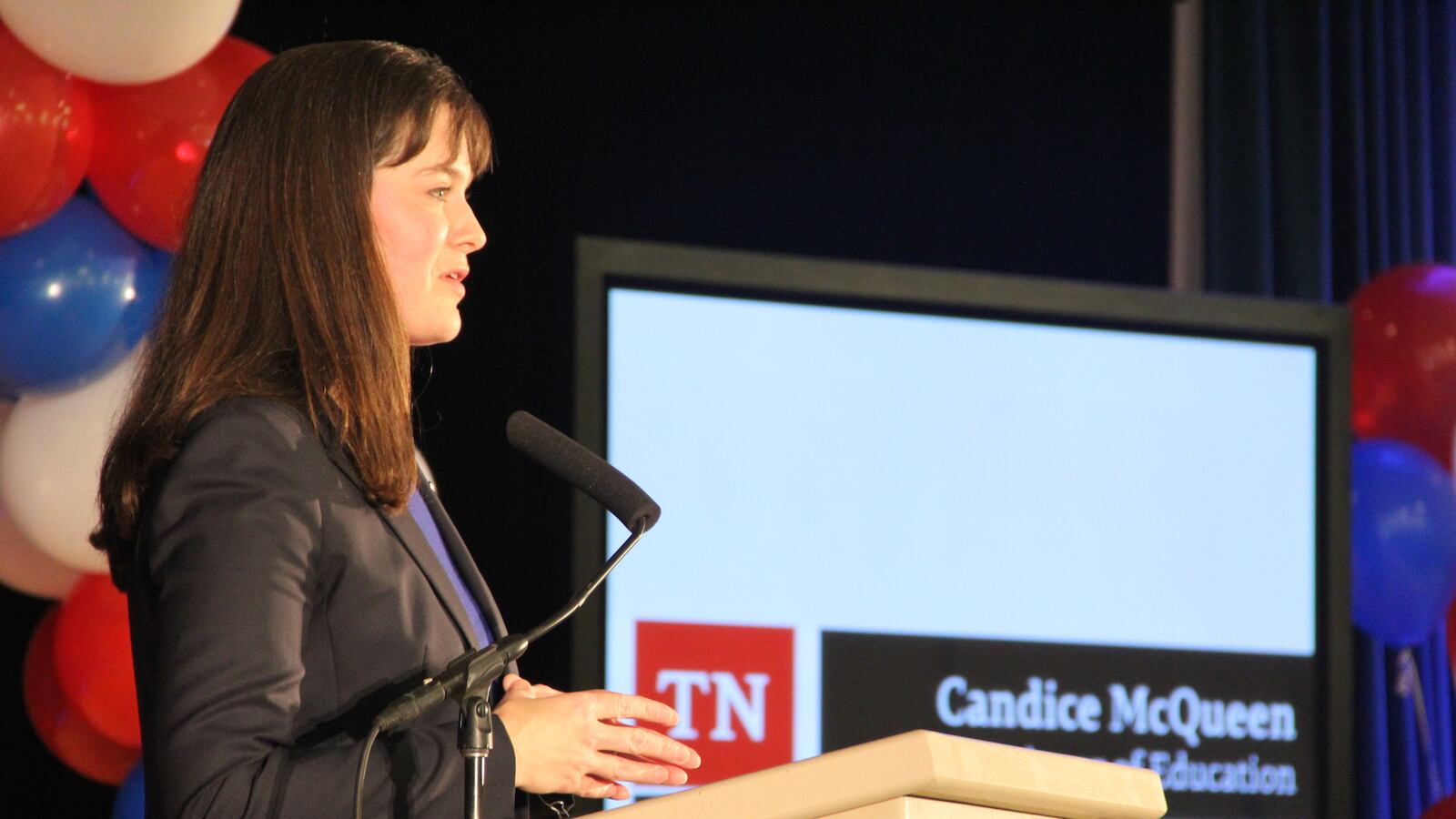In a fiery speech to state lawmakers on Tuesday, Education Commissioner Candice McQueen gave a stinging assessment of Tennessee’s school turnaround work, even calling the outcomes “a little embarrassing.”
McQueen noted that the state has moved only 10 schools off its “priority” list since compiling its first list in 2012, beginning with 83 low performing schools.
“We can’t keep throwing $10 million, $11 million, $12 million, $15 million at solutions that are not solutions,” she told legislators on House education committees.
The remarks were a departure from McQueen’s usual placating tone — and her most direct condemnation of school turnaround work to date in Tennessee. That work includes programs spearheaded both by local districts and the state’s Achievement School District, which has authority to take over schools in the state’s bottom 5 percent, generally assigning them to charter operators.
But her indictment stretched far beyond the state’s role in those programs, which serve mostly poor communities. She took aim at efforts that began with the 2002 federal education law known as No Child Left Behind, which prescribed how states must deal with struggling schools.
“This is probably going to come across as a little preachy, but it is preachy,” said McQueen, who became commissioner in 2014. “We’ve got kids who were sitting in schools that we knew — we knew — and I want you to listen to the years, back in 2002, 2003, 2004, that they were in a low performing school that needed to turn around fast. (Those students have) now graduated, and we did not have the increases we needed at those schools to set them up for success.”
While McQueen didn’t single out specific turnaround initiatives, she stressed that Tennessee needs to focus on what has worked — specifically, at 10 schools that have been moved off the state’s priority list so far and have undergone case studies. McQueen named common themes: strong school leaders, quality instruction, and community and wraparound supports, such as mental health care services.
No longer at the bottom: These 20 schools are Tennessee’s model for school turnaround
Those successes helped to inform the school improvement component of Tennessee’s proposed new education plan under the federal Every Student Succeeds Act, or ESSA. Under that plan, the state would work with local districts to improve their lowest-performing schools through academic and wraparound services. The ASD, which McQueen refers to as the state’s “most rigorous intervention,” would be reined in, making it a last-resort when other efforts have failed. Lawmakers will vote on components of the plan in the coming months.
Under ESSA, states have more flexibility on how to spend money for school improvement. In the past, the federal government gave states school improvement grants with explicit instructions on how to spend them. But those grants ultimately didn’t work, according to a recent study by the U.S. Department of Education.
McQueen told lawmakers that, under the plan, the state would give low-performing schools more resources than ever, but also would expect a quicker pace of change.

“This work is about shorter time frames with more support and expectation of outcomes that ultimately will make or break the future of Tennessee,” she said.

